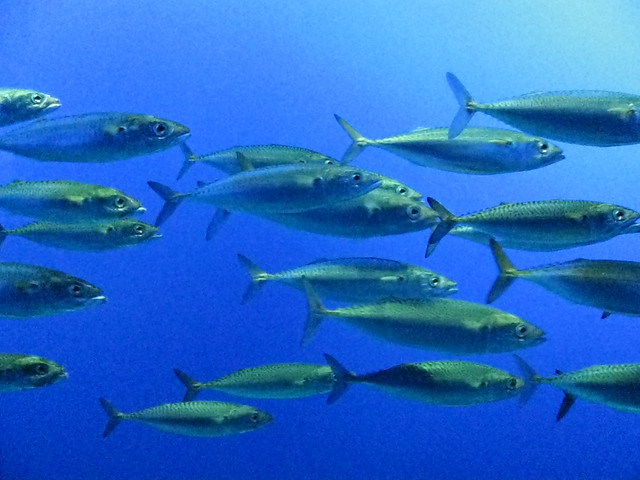In brief, commitments and recommitments were made to:
158. Healthy oceans, ecosystem and precautionary approaches: We therefore commit to protect, and restore, the health, productivity and resilience of oceans and marine ecosystems, and to maintain their biodiversity, enabling their conservation and sustainable use for present and future generations, and to effectively apply an ecosystem approach and the precautionary approach in the management, in accordance with international law, of activities impacting on the marine environment, to deliver on all three dimensions of sustainable development .
159. UN Convention on the Law of the Sea: We urge countries to implement their commitments under UNCLOS.
160. Capacity building: We recognize the importance of building the capacity of developing countries to be able to benefit from the conservation and sustainable use of the oceans and seas and their resources and, in marine scientific research and transfer of marine technology.
161. UN Regular Process: We encourage consideration by States of the findings of the assessment Regular Process for Global Reporting and Assessment of the State of the Marine Environment, including socio-economic aspects.
162. Biodiversity beyond national jurisdiction: We commit to address, on an urgent basis, the issue of the conservation and sustainable use of marine biological diversity of areas beyond national jurisdiction including by taking a decision on the development of an international instrument under UNCLOS during UNGA 69.
163. Marine pollution: We commit to reduce pollution on marine ecosystems, including through implementing relevant IMO relevant conventions and follow up of the Global Programme of Action for the Protection of the Marine Environment from Land-based Activities and other relevant initiatives. We commit to take action by 2025 to achieve significant reductions in marine debris.
164. Alien invasive species: We commit to implement measures to prevent the introduction of, and manage the adverse environmental impacts of, alien invasive species including, as appropriate, those adopted in the framework of the IMO.
165. Sea level rise and coastal erosion: We call on the international community to enhance its efforts to address the challenges of sea level rise and coastal erosion particularly in developing countries.
166. Ocean acidification and climate change: We call for support to initiatives that address ocean acidification and the impacts of climate change on marine and coastal ecosystems and resources. We need to work collectively to prevent further ocean acidification, as well as enhance the resilience of marine ecosystems and of the communities whose livelihoods depend on them, and to support marine scientific research, monitoring and observation of ocean acidification and particularly vulnerable ecosystems.
167. Ocean fertilization: We resolve to continue addressing with utmost caution ocean fertilization, consistent with the precautionary approach.
168. Restoring fish stocks: We commit to intensify our efforts to meet the 2015 target as agreed to in the Johannesburg Plan of Implementation (JPOI) to maintain or restore stocks to levels that can produce maximum sustainable yield on an urgent basis. Including to:
- intensify efforts urgently to maintain or restore fish stocks to levels that can produce at least MSY by 2015, to do so,
- suspend catch or fishing effort,
- manage bycatch
- eliminate destructive fishing practices,
- enhance actions to protect vulnerable marine ecosystems, including effective use of impact assessments
170. IUU fishing: We recommit to eliminate IUU fishing (JPOI) including by
- National and regional plans under IPOA-IUU
- Coastal, flag, port state and charter state measures, and state of beneficial owners and others, by identifying vessels engaged in IUU fishing and by depriving offenders of the benefits accruing from IUU fishing
- cooperating with developing countries to identify needs and build capacity, including support for monitoring, control, surveillance, compliance and enforcement systems
172. RFMO performance reviews: We recognize importance of transparency and accountability in RFMOs and publicly available regular performance reviews. We encourage implementation of recommendations and recommend strengthening of the comprehensiveness of reviews.
173. Eliminating subsidies: We reaffirm out JPOI commitment to eliminate subsidies that contribute to illegal, unreported, and unregulated fishing and overcapacity taking into account the importance of this sector to developing countries including through:
-
the prohibition of fisheries subsidies that contribute to overcapacity and over-fishing,
encourage States to further improve the transparency and reporting of existing fisheries subsidies programmes through the WTO.
encourage States to eliminate subsidies that contribute to overcapacity and over-fishing, and
refrain from introducing new such subsidies or from extending or enhancing existing such subsidies.
175. Small scale fisheries access: “We commit to observe the need to ensure access to fisheries, and the importance of access to markets, by subsistence, small-scale and artisanal fisherfolk and women fish workers, as well as indigenous peoples and their communities, particularly in developing countries, especially small island developing States.”
176. Coral Reefs: We recognize significant contributions of coral reefs and their vulnerability to e.g., climate change, ocean acidification, overfishing, destructive fishing practices and pollution. We support international cooperation as well as technical collaboration and voluntary information sharing.
177. MPAs: We reaffirm the importance of area based conservation measures, including MPAs, as a tool for conservation of biological diversity and sustainable use of its components and note Aichi target of 10% of oceans by 2020.
Photo courtesy of Tim Pearce via Flickr (CC BY 2.0)

